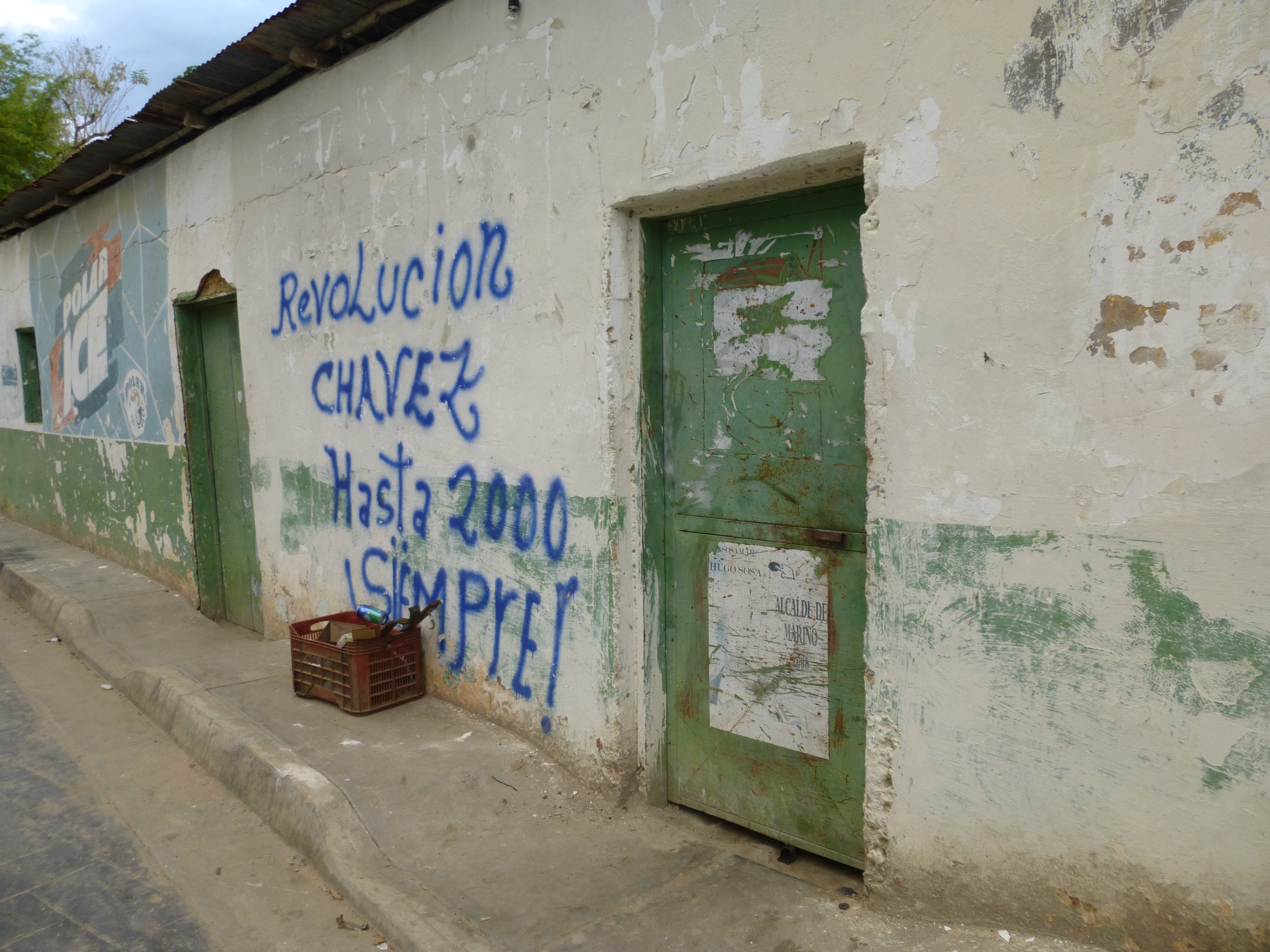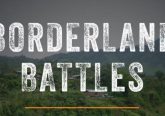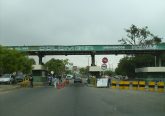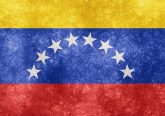
With Venezuelan president Hugo Chávez’s death last week, the world has lost a flamboyant actor on the international stage. Yet the play seems to go on as usual. Radical change to Venezuela’s domestic and international politics is unlikely. Several polls indicate that interim president Nicolás Maduro will win the elections to be held on 14 April and his rhetoric suggests that he will continue Chávez’s policies. Even if Henrique Capriles, the opposition candidate, triumphs, he will not change policies overnight.
But while many have speculated about the implications for both advocates and opponents of Chávez’s Bolivarian Revolution, few have cared about those at the margins of it: the “free-riders” who do not necessarily endorse Chávez’s project, but for whom it has been a convenient platform to pursue their interests. This free-riding exists on the national, regional and international level and could provoke serious security threats for Venezuela and beyond if it continues to be ignored.
On the national level, four ‘armed actors’ who benefitted from the Bolivarian Revolution might jeopardize security. First, the “colectivos”, radical, often armed, left-wing groups that impose order in neighbourhoods such as 23 de Enero in Caracas, might generate violent unrest. In an interview with one of the most radical groups, they told me they were more “chavista” than Chávez, ready to fight the revolutionary struggle with arms in the absence of the former leader. Chávez managed to keep them calm, but neither Maduro nor Capriles is likely to have the same influence.
Second, the role of Venezuelan military officials in organised crime, especially the cocaine trade, is likely to increase. Chávez created ten ‘military districts’ in December 2010 (the consequence of reforms put in place by Armed Forces Law passed in October 2009), which, as I witnessed in the states of Zulia, Táchira and Apure, led to the proliferation of military checkpoints and the deployment of tanks in border areas. Though the purpose was ostensibly to reduce illicit cross-border activities, these activities are thriving, suggesting the acquiescence – if not connivance – of Venezuelan state forces. With ‘Plan Sucre’, the strategic axis of Venezuela’s socialist Development Plan (2013–19), the country will be militarised further, generating more opportunities for corrupt members of the armed forces to reap benefits from activities such as the smuggling of ammunition, arms and illegal drugs (the involvement of certain Venezuelan military officials in the drug trade has become known as the “Cartel de los Soles”). As opposed to Chávez, who was a military commander as president, the new, civilian Venezuelan president will have difficulties in commanding enough respect to enforce discipline of the military. Rather, with Venezuela being an important cocaine trade transit country, some military officials might well increase their willingness to act as ‘facilitators’ along drug trafficking routes that feed European and US markets.
Third, the Bolivarian Forces of Liberation (FBL), a left-wing armed group primarily functioning in the Venezuelan states of Apure, Barinas and Zulia might intensify the use of violence (for more information on the various types of violent non-state actors present in the Colombian-Venezuelan borderlands see my recent article in Perspectives on Terrorism). Interviewees in Apure told me that, whilst in the last years the FBL have been exerting social control, they refrained from revenge-inspired violence, not least because Chávez pronounced himself against this (see my recent article in Indiana).[1] Now that this “control figure” is gone, they might change their modus operandi, with the risk that the local population will experience what it suffered five years ago: soaring homicide rates, terror and fear. Neither Maduro, a former bus driver, nor the relatively right-wing Capriles, is likely to be granted as much respect as Chávez the revolutionary.
Fourth, many of the territorial militias – Venezuelan civilians trained under the new Bolivarian military doctrine to defend the nation in case of a war of the “Empire” against Venezuela – have lost their inspiration, which could precipitate violence. Friends of the militias told me that many have joined in order to serve the “Comandante”, a goal that, despite the new slogan of “Somos Chavistas Maduros” (“We are mature chavistas” a play on the meaning of Maduro’s name) won’t be feasible anymore, which may cause frustration among militia members. While the plan of training one million militia members by 2013 seems to have failed, the actual estimated number, 125,000, is still considerable and so is their potential for unrest due to the lack of a respected leader (see for example a recent report by the International Crisis Group).
At the regional level, most analysts (e.g. Silla Vacia [in Spanish]) have reflected on the future of regional organisations such as UNASUR and ALBA that Chávez backed as a counterbalance to the influence of the United States. Yet except from presidential rhetoric and group pictures, they haven’t achieved a great deal on the ground, and in the cases in which they have, it was based on a joint effort, rather than Chávez’s sole efforts. These organisations will continue “business as usual”, and regional leadership in general terms is likely to be expanded further by Brazil. The implications for individual countries suggest continuity as well: Nicaragua and the Petrocaribe states will continue to receive financial aid or oil because these matters are bound to international contracts; thus, at least in the intermediate term, a change is unlikely.
Yet while the world is looking at the left-wing states that have lost their ally, another state feels the absence of Chávez directly: Colombia. Chávez bridged the “trust-gap” between the Colombian government and the FARC in the peace talks that they initiated last year in Havana, Cuba. He was supposed to step in if difficulties in the negotiation process arose and to assist in ensuring the implementation of the future agreement. To be sure, the peace talks have lost an important facilitator, but not the prospects for success. However, in his absence, Venezuela’s influence on the FARC fronts along the Colombian-Venezuelan border diminishes. So far, the FARC have mostly kept a low profile on Venezuelan territory which helped avoid bi-national troubles (similar issues have arisen at the Colombian-Ecuadorian border, see my article in St Antony’s International Review). With Venezuela being less relevant now for the outcome of the peace talks, the FARC might no longer respect constraints and instead resort to violence against competitors and the local population to ensure their territorial dominion.
At the international level, the Bolivarian project after Chávez is convenient for players who benefitted from Chávez’s policies indirectly. After Maduro’s expelling of US diplomats, many feared concerns regarding repercussions on Venezuelan-US-relations. However, it is unlikely that the status quo will change in any dramatic way: the US will probably continue to react with tit-for tat responses or simply ignore such moves as it did under the previous Obama administration (see my article in RUSI Newsbrief). Yet other countries might change the tone of their policies. It was expedient for countries such as Iran, Syria or Belarus to have a “spokesperson” in the Western Hemisphere in order to enhance their significance in the international arena. Now that this figure is gone, they might want to strike deeper roots in other Latin American countries such as Nicaragua or Bolivia. The implications of this remain uncertain.
In brief, at least in the short and intermediate term, Venezuela’s domestic, regional and international policies are likely to be characterised by continuity in the absence of Chávez. While opponents might try to countervail these dynamics and advocates to foster them, we should not forget about the free-riders on all these three levels. They may find it convenient to transgress or change the rules of the Bolivarian game which could lead to serious security implications for Venezuela and beyond. Hence, no matter who will win in April, unity is the joker that both sides need to play. The current uncertainty that surrounds Venezuela’s future should be considered a window of opportunity to move from a personality-focused agenda to a political programme that takes into consideration all Venezuelans: opponents as well as advocates of the Revolution, and, importantly, the free-riders at the margins.
[1] C.f. Idler, Annette (2013) “Espacios Invisibilizados: Actores Violentos No-Estatales en las Zonas Fronterizas de Colombia”, Indiana (Berlin: Ibero-American Institute).







No Comment